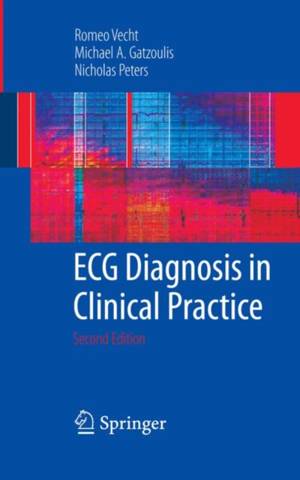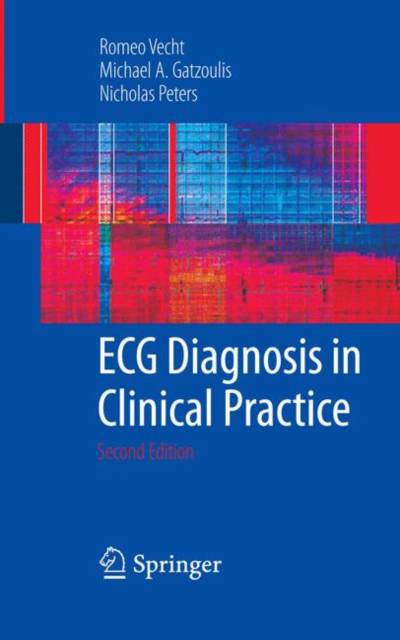
- Retrait gratuit dans votre magasin Club
- 7.000.000 titres dans notre catalogue
- Payer en toute sécurité
- Toujours un magasin près de chez vous
- Retrait gratuit dans votre magasin Club
- 7.000.0000 titres dans notre catalogue
- Payer en toute sécurité
- Toujours un magasin près de chez vous
ECG Diagnosis in Clinical Practice
Romeo Vecht, Michael A Gatzoulis, Nicholas PetersDescription
Over the last century the ECG has been used by clinicians to make major clinical decisions with regard to electric pacing, the use of thrombolytic drugs in acute myocardial infarction and the timing of surgery. In conjunction with a chest X-ray and the echocardiogram it is a fundamental part of the initial investigation of a patient with suspected heart disease. These electrical squiggles have always been difficult for students to understand. In part the problem has been that the formatting of the ECG has only become standard in the last two decades. Some important books have not provided the full twelve-lead ECG. On occasion the interpretation of the ECG has been related to complex explanations of the shapes of the electrical signals. For the practising physician much of the interpretation is a matter of pattern recognition.
Spécifications
Parties prenantes
- Auteur(s) :
- Editeur:
Contenu
- Nombre de pages :
- 260
- Langue:
- Anglais
Caractéristiques
- EAN:
- 9781848003118
- Date de parution :
- 29-12-08
- Format:
- Livre broché
- Format numérique:
- Trade paperback (VS)
- Dimensions :
- 127 mm x 201 mm
- Poids :
- 408 g

Les avis
Nous publions uniquement les avis qui respectent les conditions requises. Consultez nos conditions pour les avis.






